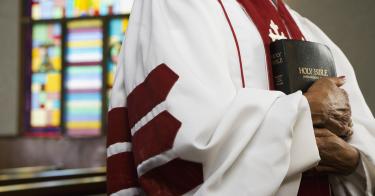America’s greatness rests on its long-standing adherence to the enduring principles its Founders wisely memorialized for future generations. The very first of these was religious liberty—a concept that goes to the very core of who we are as free-thinking, self-determined individuals.
The so-called Equality Act, which would make 59 substantive changes to federal law, would completely undermine this liberty.
After passing the House in February, the act is currently languishing in the Senate, and faces the not-impossible chance of a 50-50 tie vote broken by the Democratic White House. In an attempt to stop the hemorrhaging on an unprecedented power grab by Democrats, some have proffered the Fairness for All Act as the Equality Act’s kinder, “gentler” alternative.
Kinder and gentler, it is not.
>>> 11 Myths About H.R. 5, the Equality Act of 2021
Instead, the bill parses out a complex selection of piecemeal protections for organizations meeting various conditions on an ad hoc basis. It protects some business under religious liberty’s ministerial exception to general discrimination law. It shields some churches (so long as the buildings aren’t used for commercial purposes), some marriage and family education providers (so long as they discriminate on “religious character” and not gender identity or sexual orientation), and some religious charities (so long as they receive funds “indirectly” through a voucher system).
It’s a master class in death by a thousand cuts.
Worse, the Fairness for All Act leaves individual objectors with no recourse. The message to private religious citizens, educators, medical professionals, scholastic athletes, or wedding service providers is clear: “Submit, or else. Your religion be hanged.” Some claim Fairness for All would “expand religious liberty.” This description is patently false.
The Supreme Court has repeatedly punted on the balance between religious freedom and the new sexual orthodoxy—including in last year’s now-watershed Bostock v. Clayton County. There, Justice Neil Gorsuch described the Religious Freedom Restoration Act—Congress’s border wall against the Supreme Court’s poor religious liberty jurisprudence—as “a kind of super statute, displacing the normal operation of other federal laws” that might even supersede the commands of anti-discrimination laws (like Title VII) in certain cases.
But the Supreme Court has recognized that even within the context of public accommodations, individuals cannot be forced to convey a message with which they don’t agree. In a unanimous decision, the Court in Hurley v. Irish-American Gay, Lesbian and Bisexual Group of Boston (1995) held that to force private citizens organizing a parade to include a group expressing a message with which the organizers did not agree violated the First Amendment. To do so, the Court clarified, would make private speech subordinate to a public accommodation requirement.
Insofar as the High Court has recognized that private citizens have the autonomy to choose what to say and what not to say, it is no stretch to say that compelling the religiously faithful to believe or not believe something, or to act or not act in a way contrary to their beliefs, is likewise impermissible, if not more so.
No one of sound mind or good character wants to discriminate against someone because of their sexuality of gender identity. But to equate subjective belief and action with the immutable characteristic of race disparages the hard-fought gains of the Civil Rights movement and sets up a battle between religious liberty and sexual identarianism that cannot be won by painting all religious dissenters as discriminatory bigots.
We dare not subjugate someone’s constitutionally enumerated rights to another’s perceived dignitary harms as part of an evolving cannon of law on sexual and gender fluidity. Particularly when the SOGI-protected class have a plethora of choices to address their needs and desires (a different doctor, a different florist, a different class, a different charity), while leaving the faithful with the Hobson’s choice of violating their consciences or facing a legal juggernaut if they stand firm on their beliefs.
Fairness for All does not ensure fairness. Instead, it grants special privileges and imposes a unitary, politically correct, legally enforceable set of beliefs about sexuality and gender on all private actors: something the Supreme Court has patently refused to do.
And if you think the left will be satisfied with this misguided bill, think again. The ACLU has said Fairness for All “doesn’t protect LGBTQ+ people.” They’ve been joined by the Human Rights Campaign (the country’s biggest LGBTQ+ civil rights group), LAMBDA Legal, and the gay advocacy group GLAAD in proclaiming that the bill “licenses discrimination.”
The “compromise” that is Fairness for All is even viewed by the left as an insufficient attempt to protect their interests. It is all or nothing. As it always was.
In 2015, conservatives decried Obergefell v. Hodges, arguing that the majority’s judicial activism represented a slippery slope in the cultural conflict between religious and sexual freedoms.
It seems they were right.
This piece originally appeared in The Washington Times



